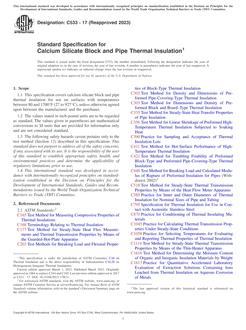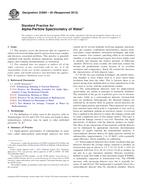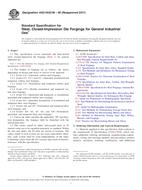1.1 This guide applies to metallic materials under consideration for oxygen or oxygen-enriched fluid service, direct or indirect, as defined in Section . It is concerned primarily with the properties of a metallic material associated with its relative susceptibility to ignition and propagation of combustion. It does not involve mechanical properties, potential toxicity, outgassing, reactions between various materials in the system, functional reliability, or performance characteristics such as aging, shredding, or sloughing of particles, except when these might contribute to an ignition.
1.2 This document applies only to metals; nonmetals are covered in Guide G 63.
Note 1
The American Society for Testing and Materials takes no position respecting the validity of any evaluation methods asserted in connection with any item mentioned in this guide. Users of this guide are expressly advised that determination of the validity of any such evaluation methods and data and the risk of use of such evaluation methods and data are entirely their own responsibility.
Note 2
In evaluating materials, any mixture with oxygen exceeding atmospheric concentration at pressures higher than atmospheric should be evaluated from the hazard point of view for possible significant increase in material combustibility.
1.3 The values stated in SI units are to be regarded as the standard.
This standard does not purport to address all of the safety concerns, if any, associated with its use. It is the responsibility of the user of this standard to establish appropriate safety and health practices and determine the applicability of regulatory limitations prior to use.
Product Details
- Published:
- 09/01/2005
- Number of Pages:
- 31
- File Size:
- 1 file , 480 KB


